|
Walter J. Palmer, the Minnesota dentist at the center of a controversy over killing Cecil the lion, is facing public outrage and protests outside his practice, but the chances of him facing any legal repercussions in either Zimbabwe or the U.S. may be slim. "It would take a motivated prosecutor either in Zimbabwe or the U.S. for him to face any charges,'' NBC legal analyst Lisa Bloom told Matt Lauer and Savannah Guthrie on TODAY Thursday. "If the Zimbabwean officials go after him, then they would have to get him extradited from the U.S. This would be very complicated." Palmer sparked a wave of vitriol online and a protest that caused him to shutter his dental clinic after he was accused of killing Cecil, one of the oldest and most famous lions in Zimbabwe, without a permit. Zimbabwe Conservation Task Force chairman Johnny Rodrigues told reporters that Palmer paid a Zimbabwean hunter, Theo Bronkhorst, and a private game park owner, Honest Ndlovu, to lure Cecil, a 13-year-old lion that was found beheaded and skinned on the outskirts of Hwange National Park on July 1. Whether Palmer could face charges in the U.S. remains unclear. "That's a tough one,'' Bloom said. "I know that authorities are looking into it. If he brought any part of the lion back, and the lion was obtained illegally, that could be a crime. If any of the $50,000 he paid in Zimbabwe went to pay a government official to do something illegal, that could be a problem for him, but there's no evidence of that at this point." Protesters in front of Palmer's dental practice on Wednesday forced him to close the office and go into hiding. The Yelp page for his practice has been bombarded with negative comments. He also sent his patients a letter of apology. Ndlovu and Bronkhorst potentially face up to 10 years in prison on poaching charges. Both of them were released on $1,000 bail on Wednesday in a Zimbabwe court and said through their attorneys that they are innocent. Palmer, who paid at least $50,000 for the hunt, claims he relied on them to make sure the hunt was legal. "Again, I deeply regret that my pursuit of an activity I love and practice responsibly and legally resulted in the taking of this lion,'' Palmer said in part of a statement to NBC News on Tuesday. "Ignorance of the law is not an excuse here in the U.S.,'' Bloom said. "It's generally not acceptable. Any American who goes overseas, you have to obey the laws of that country, and it's generally not sufficient to say, 'Well, I just relied on the locals.''' Palmer previously had been fined $3,000 after pleading guilty of the illegal killing of a black bear in Wisconsin in 2006, according to court documents. Source: Today.com A Peaceful Farewell provides compassionate at home pet euthanasia to fellow pet owners in Chandler, Gilbert, Mesa, Tempe, Ahwatukee, Scottsdale, and most of the Greater Phoenix Metropolitan Area.
0 Comments
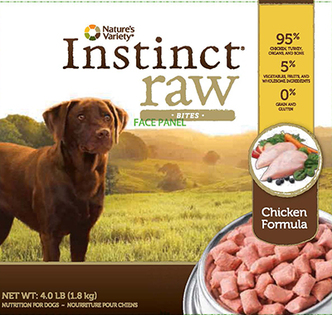 Contact: Consumer: 888-519-7387 Email: [email protected] FOR IMMEDIATE RELEASE — July 24, 2015 — ST. Louis, MO — Nature’s Variety has announced a voluntary recall of their Instinct® Raw Chicken Formula for dogs with a “Best By” date of 04/27/16 because these products may be contaminated with Salmonella. Salmonella can affect animals eating the products and there is risk to humans from handling contaminated pet products, especially if they have not thoroughly washed their hands after having contact with the products or any surfaces exposed to these products. Healthy people infected with Salmonella should monitor themselves for some or all of the following symptoms: nausea, vomiting, diarrhea or bloody diarrhea, abdominal cramping and fever. Rarely, Salmonella can result in more serious ailments, including arterial infections, endocarditis, arthritis, muscle pain, eye irritation, and urinary tract symptoms. Consumers exhibiting these signs after having contact with this product should contact their healthcare providers. Pets with Salmonella infections may be lethargic and have diarrhea or bloody diarrhea, fever, and vomiting. Some pets will have only decreased appetite, fever and abdominal pain. Infected but otherwise healthy pets can be carriers and infect other animals or humans. If your pet has consumed the recalled product and has the symptoms, please contact your veterinarian. The affected products are limited to the Instinct Raw Chicken Formula Frozen Diets packaged in the following forms:
No illnesses have been reported to date. Even though no illnesses have been reported, consumers should follow the Simple Handling Tips published on the Nature’s Variety package when disposing of the affected product. Nature’s Variety became aware of a potential issue after receiving notification from the FDA that a routine surveillance sample of seven pound Instinct Raw Chicken Bites for dogs tested positive for Salmonella. Consumers feeding the affected product should discontinue use and monitor their pet’s health, and contact their veterinarian if they have concerns. Consumers who have purchased one of the above products can obtain a full refund or exchange by either returning the product in its original packaging or bringing a proof of purchase back to their retailer. Consumers with additional questions can call our Consumer Relations team at 888-519-7387 from 8 am to 7 pm Central time, 7 days a week during the recall. Or, consumers can email Nature’s Variety directly via [email protected]. Reed Howlett, Chief Executive Officer of Nature’s Variety, stated, “At Nature’s Variety we take quality and safety very seriously. We believe that under all circumstances, health and safety comes first, and we are committed to providing the best possible nutrition for pets.” A Peaceful Farewell provides compassionate at home pet euthanasia to fellow pet owners in Chandler, Gilbert, Mesa, Tempe, Ahwatukee, Scottsdale, and most of the Greater Phoenix Metropolitan Area.
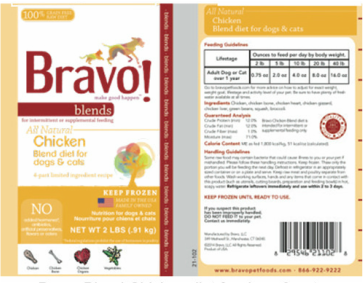 Contact: Consumer: (866) 922-9222 Media: E-mail: [email protected] FOR IMMEDIATE RELEASE – July 23, 2015 – Manchester, CT – Bravo Pet Foods of Manchester, CT is recalling select lots of Bravo Chicken pet foods for dogs and cats due to concerns of the possible presence of Salmonella. The recall was initiated after routine testing by the New York State Department of Agriculture revealed the presence ofSalmonella spp. Poly A contamination. All products tested negative by a third party independent laboratory prior to release for distribution to consumers. No additional products are affected by this recall. The company has received no reports to date of illness in either people or animals associated with these products. Salmonella can cause serious illness or fatal infection in young children, frail or elderly people, and others with weakened immune systems. Although healthy individuals may suffer only short term symptoms such as high fever, severe headache, stiffness, nausea, abdominal cramping and diarrhea. Consumers exhibiting these signs after having contact with this product should contact their healthcare providers. Always use proper caution when handling raw foods. The following product is being voluntarily recalled because of the possible presence of Salmonella. ProductItem #SizeBest Used byUPCBravo Blend Chicken diet for dogs & cats - Chub21 - 1022 lb (32 oz.) chub12-05-16829546211028 105 cases of this product were sold to distributors, retail stores, internet retailers and directly to consumers in the US. These products DID NOT test positive for Salmonella, but are also being voluntarily recalled out of an abundance of caution because they were manufactured in the same manufacturing facility on the same day as the product that tested positive. ProductItem #SizeBest Used byUPCBravo Balance Chicken Dinner for dogs - Patties21 - 4013 lb (48 oz.) bag12-05-16829546214012Bravo Balance Chicken Dinner for dogs - Chub21 - 4022 lb (32 oz.) chub12-05-16829546214029Bravo Blend Chicken diet for dogs & cats - Patties21 - 5085 lb (80 oz.) bag12-05-16829546215088 These products were sold to distributors, retail stores, internet retailers and directly to consumers in the US. The recalled product should not be sold or fed to pets. Pet owners who have the affected product at home should dispose of this product in a safe manner (example, a securely covered trash receptacle). To submit a claim, pet owners should return to the store where they bought the product. To get a refund at the store where you bought the product: Customers should return to the store where they purchased the product and submit the Bravo Recall Claim Form available on the Bravo website http://www.bravopetfoods.com/consumerrecall.html for a full refund or store credit. See Bravo Product Claim Form for details. More information on the Bravo recall can also be found at www.bravopetfoods.com, or call toll free (866) 922-9222 Monday through Friday 9:00 am to 4:00 pm (EST). A Peaceful Farewell provides compassionate at home pet euthanasia to fellow pet owners in Chandler, Gilbert, Mesa, Tempe, Ahwatukee, Scottsdale, and most of the Greater Phoenix Metropolitan Area.
Although it’s nearly impossible to predict which breed of dog will live the longest or be the healthiest, there are certain breeds that seem to have lower instances of genetic diseases, bone-related injuries and conditions relating to their skin and coat. Take a look at which breeds are thought to be among the healthiest and how to help your dog live a long, healthy life, below. Australian Cattle Dog While there’s no way to prove which breed is the healthiest, some working breeds, including Australian Cattle Dogs, may be among those with the least number of health-related issues. “Unfortunately, there’s no hard data that provides a scientific answer,” said Jennifer Coates, DVM in Fort Collins, Colorado and veterinary advisor to petMD.com. “In my experience, dogs that are still being bred to do a job tend to be the healthiest.” Australian Cattle Dogs have been traditionally used for cattle herding and have remained popular working dogs because of their intelligence, problem solving skills and soft but assertive bites with cattle. With a lifespan of about 10 to 13 years, Australian Cattle Dogs make excellent companions to high-energy families or on-the-go owners. Major health concerns include hip dysplasia, elbow dysplasia and deafness. Foxhound Another working breed listed as one of the healthiest by Coates, Foxhounds have been primarily used for foxhunting and, because of their working dog genes, may be healthier than dogs bred for show. “When breeders focus on function instead of just good looks, they naturally weed out the dogs that develop debilitating illnesses or injuries,” Coates explained. With a lifespan of 11 to 13 years, Foxhounds make an excellent choice for families who live in rural areas or on large farms and are not prone to many major health problems. They require moderate daily exercise in the form of a walk or jog and need minimal grooming aside from an occasional brushing. German Shorthaired Pointer An all-purpose hunting dog known for its intelligence and proficiency with many different types of game and sport, the German Shorthaired Pointer is another healthy breed, according to Coates. With an average lifespan of 12 to 14 years, German Shorthaired Pointers are prone to health concerns like hypothyroidism, hip dysplasia and gastric torsion. A high-energy breed that requires plenty of daily exercise, German Shorthaired Pointers will need plenty of access to the outdoors and, like all breeds, require mental stimulation throughout the day. “Providing dogs with mental stimulation, physical exercise and maintaining them at a healthy weight will go a long ways towards keeping any dog healthy, regardless of its breed,” Coates shared. Border Collie Another high-energy breed renowned for its agility, intelligence and obedience, Coates lists the Border Collie as one of healthiest. With a lifespan of 10 to 14 years, Border Collies are prone to health problems including seizures and hypothyroidism. A breed that is eager to please with a high level of trainability, Border Collies should be provided with plenty of daily exercise as well as regular access to the outdoors. Chihuahua Known for being the smallest breed in the world, Chihuahua’s are loyal, intelligent, and among the healthiest breeds, according to Denise Petryk, DVM and director of veterinary services at Trupanion pet insurance. With an average lifespan of 14 to 18 years, Chihuahua’s are known to suffer from health conditions including hypoglycemia, patellar luxation and pulmonic stenosis, a heart valve disorder. A smooth-coated Chihuahua requires minimal grooming while longhaired varieties require brushing two to three times a week. Because of their size, Chihuahuas require minimal exercise beyond a short walk. Havanese Compared to other dogs of the same size, Petryk also lists the Havanese among healthy breeds. A popular friendly pet known for its friendly demeanor, Havanese live between 12 to 14 years and suffer from health problems including patellar luxation, deafness and elbow dysplasia. A non-shedding breed that requires brushing several times per week to prevent tangles, the Havanese breed requires short walks to meet their exercise needs. In addition to keeping your pup fit, Petryk also recommends offering your dog high quality food and treats to help them stay healthy. Australian Shepherd With relatively few claims for bone-related injuries as well as conditions related to the coat and skin, Australian Shepherds are also relatively healthy, according to Petryk. An all-purpose farm dog, Australian Shepherds are intelligent, obedient and agile and require regular exercise and mental stimulation. With an average lifespan of 12 to 15 years, the breed is prone to health issues including hip dysplasia, hypothyroidism and Collie Eye Anomaly, an inherited congenital eye condition. Australian Shepherds require minimal grooming beyond an occasional combing and, as with all dog breeds, Petryk recommends giving your dog regular, high quality flea and tick prevention with products recommended by your veterinarian to maintain its health. LabradoodleA popular mixed breed that is a cross between a Labrador Retriever and a Poodle, Petryk lists Labradoodles among those with relatively few claims for bone-related injuries and conditions related to the coat and skin. The breed’s coat should be shampooed and brushed regularly and trimmed at least twice a year. They may suffer from health conditions commonly seen in its parent breeds including hip dysplasia, Addison’s disease and eye disorders including progressive retinal atrophy. To ensure your dog lives a long, healthy life, Petryk recommends establishing a relationship with a veterinarian you like and keeping up-to-date with any preventative vaccinations they suggest. She also advises pet owners to schedule annual physical examinations for their dogs, including dental assessments. Siberian Husky A medium-sized dog renowned for its abilities as a sled and racing dog, the Siberian Husky is relatively healthy compared to other breeds of the same size, Petryk said. While the breed is still used as a working dog, it has also become a loving pet for active families and those who love the outdoors. With a lifespan of 11 to 13 years, Siberian Huskies may suffer from health problems including progressive retinal atrophy, hypothyroidism and cataracts. In addition to establishing a relationship with a veterinarian you trust, Petryk suggests becoming familiar with you local emergency and specialty hospitals, learning to provide pet first aid and getting pet insurance to prepare yourself in case your dog has a health-related emergency. Mixed Breed With a unique genetic markup and a lower level of inbreeding, mixed breed dogs are generally among the healthiest, Coates said. “A recent study showed that mix breed dogs were significantly less likely to develop ten genetically based diseases, including some types of heart disease, musculoskeletal problems, allergic skin disease and hyperthyroidism,” she added. Source: Pet MD / Jessica Remitz A Peaceful Farewell provides compassionate at home pet euthanasia to fellow pet owners in Chandler, Gilbert, Mesa, Tempe, Ahwatukee, Scottsdale, and most of the Greater Phoenix Metropolitan Area.
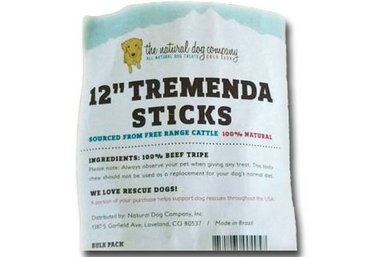 The Natural Dog Company, Inc. Recalls 12" Tremenda Sticks Because of Possible Salmonella Health RiskContact: Consumer: 1-888-424-4602 FOR IMMEDIATE RELEASE – July 20, 2015 – Windsor, CO – The Natural Dog Company, Inc. of Windsor, CO, is recalling its 12oz bags of 12" Tremenda Sticks pet chews because they have the potential to be contaminated with Salmonella.Salmonella can affect animals eating the product and there is risk to humans from handling contaminated products, especially if they have not thoroughly washed their hands after having contact with the products or any surfaces exposed to these products. Healthy people infected with Salmonella should monitor themselves for some or all of the following symptoms: nausea, vomiting, diarrhea or bloody diarrhea, abdominal cramping and fever. Rarely, Salmonella can result in more serious ailments, including arterial infections, endocarditis, arthritis, muscle pain, eye irritation, and urinary tract symptoms. Consumers exhibiting these signs after having contact with this product should contact their healthcare providers. Pets with Salmonella infections may be lethargic and have diarrhea or bloody diarrhea, fever, and vomiting. Some pets will have only decreased appetite, fever and abdominal pain. Infected but otherwise healthy pets can be carriers and infect other animals or humans. If your pet has consumed the recalled product and has these symptoms, please contact your veterinarian. The recalled 12" Tremenda Sticks were distributed to retail stores in CA, CO, FL, IL, MO MT, NC, OH UT and WA. The recalled product comes in a 12oz bag without a lot number or expiration date with UPC number: 851265004957. Products with new packaging, which includes both a lot number and expiration date but the same UPC are not affected by this recall. No illnesses have been reported to date in connection with this problem. The potential for contamination was noted after a Colorado Department of Agriculture inspection of the product revealed the presence of Salmonella in a sample taken from a 12oz package of 12" Tremenda Sticks. Production of the product has been suspended while FDA and the company continue their investigation as to the source of the problem. Consumers who have purchased 12oz packages of 12" Tremenda Sticks should discontinue use of the product and may return the unused portion to the place of purchase for a full refund. Consumers with questions may contact the company at 1-888-424-4602 – Monday to Friday 9am to 5pm MST. A Peaceful Farewell provides compassionate at home pet euthanasia to fellow pet owners in Chandler, Gilbert, Mesa, Tempe, Ahwatukee, Scottsdale, and most of the Greater Phoenix Metropolitan Area.
Siberian Husky puppy worth $2,850 was stolen Saturday evening from Dallas Petland. Police arrested a suspect and returned the pup to the store early Sunday. (Photos provided by Dallas Petland) Dallas police returned a stolen puppy to a North Dallas pet store on Sunday, a day after a man walked out with the $2,850 Siberian Husky. Cody Golden, office manager of Dallas Petland, said the thief was caught after an employee recognized him from surveillance video. Police couldn’t confirm an arrest. The bearded suspect is seen on video walking out with the 10-week-old puppy in his arms around 7 p.m. Saturday at the store at 11909 Preston Road. He walked until he reached the parking lot, when he started running, the video shows. An employee chased the suspect and provided police with the license plate of his getaway car, which was driven by a woman, Golden said. The employee who recognized the suspect from the video told police the man’s identity, Golden said. By midnight, police had recovered the puppy. “I didn’t think we would get him back that quickly,” Golden said. “I’m shocked and relieved.” It wasn’t the first time Petland suffered a puppy theft. A few years ago, Golden said, thieves broke the store’s front glass door overnight during Christmas season and stole nine puppies. Source: The Dallas Morning News A Peaceful Farewell provides compassionate at home pet euthanasia to fellow pet owners in Chandler, Gilbert, Mesa, Tempe, Ahwatukee, Scottsdale, and most of the Greater Phoenix Metropolitan Area.
An "extremely rare" white humpback whale recently made researchers' jaws drop when it surfaced above Cook Strait waters off New Zealand. The white whale was photographed on Monday swimming side-by-side with a buddy, a more common black humpback whale, the New Zealand Department of Conservation (DOC) said in a statement recently. "Only four white humpback whales have been reported in the world," said Nadine Bott, the leader of the boat's survey team counting whales passing through Cook Strait. They survey is assessing humpback whale recovery since commercial whaling ended in 1964 in New Zealand and aims to estimate the size of the humpback population in our waters. Bott said there is a promising indication humpback whale numbers are increasing in our waters. The DOC added it believes the spotted white whale is Migaloo, which literally means "white fella" in an aboriginal Australian language. "Migaloo is the most famous" of white humpback whiles from Australia, Bott explained adding that he "is thought to have fathered two white calves which have been making appearances along Australia's eastern coast. One has been named MJ, short for Migaloo junior." Researchers said they will do a DNA test from a skin sample they got from the whale to confirm whether the whale is in fact Migaloo. The analysis will also reveal whether the whale is albino or whether its whiteness is due to color variation. "This is so unique," said marine mammal scientist Carolos Olavarria, who was with Bott during the sighting. "I have never seen anything like this in New Zealand." Source: ABC News / New Zealand Department of Conservation A Peaceful Farewell provides compassionate at home pet euthanasia to fellow pet owners in Chandler, Gilbert, Mesa, Tempe, Ahwatukee, Scottsdale, and most of the Greater Phoenix Metropolitan Area.
It’s official. At 6-foot-4, Blosom is the world’s tallest cow ever. That’s the determination made by Guinness World Records, which had previously named the female Holstein the world’s tallest living cow. The new record was announced on June 25. Blosom lived on a farm in Orangeville, Illinois. Her owner, Patty Meads-Hanson, got Blosom when the cow was just eight weeks old. Blosom was 13 years old when she died on May 26. During her life, she was the official "greeter" for Memory Lane Crafting Retreat, a retreat situated on the farm. ABC News couldn’t reach Meads-Hanson for comment on Thursday evening, but a post on Blosom’s Facebook page said the cow “was called to graze in a more glorious pasture.” Blosom died after suffering a leg injury. Meads-Hanson found the cow down in a pasture, her left leg in “a position that wasn’t normal,” according to a post on the Facebook page. Two veterinarians worked in the pouring rain to try to lift the cow but they were ultimately unsuccessful. “Her injury appeared to happen when she laid down, slipping in the mud, and damaging a ligament in her hip, and would never be able to stand. I had to make that hard decision - I wouldn't let her suffer. It's the last act of kindness you can do for an animal you love, but it sure is hard,” Meads-Hanson wrote on Facebook. Source: ABC News / Guinness World Records A Peaceful Farewell provides compassionate at home pet euthanasia to fellow pet owners in Chandler, Gilbert, Mesa, Tempe, Ahwatukee, Scottsdale, and most of the Greater Phoenix Metropolitan Area.
We can’t live without water. But our waters can often be dangerous to us and our pets. A Florida television channel reported last week about the deaths of two men who had contracted a rare flesh destroying bacteria found in salt water. Six others were reported to have been stricken with the same bacteria. Whether the condition was contracted directly from the water, or from oysters or fish from those waters, is still not clear. There have been no reports of dogs being stricken by the same bacterial infection. The incident, however, got me to thinking about the many ways that water can harbor danger to our pets. This post will explore a few. Jellyfish Jellyfish washed onto the shore are a very common finding for beach combers and their beach combing dogs. The tentacles of these creatures have organs that release a stinging toxin whose potency varies with the different species of jelly fish. Even dried out tentacles in the sand or mixed in seaweed can still release the toxin. Dogs that come in contact with the tentacles or bite them can have a mild to serious local allergic reaction, or a more serious anaphylactic reaction resulting in shock. That is exactly what happened to 2-year-old pit bull named Diamond after she bit the tentacles of the most toxic of jellyfish, the Portuguese Man O’ War. After several days in intensive care, including transfusions, Diamond survived and is back to her old self. Many dogs are not that fortunate. If your dog has been stung by jellyfish tentacles, even one of the less toxic species, remove the tentacles without touching them directly with your bare hands and immediately seek veterinary care. Blue-Green Algae Warm weather can promote massive growth of blue-green algae in standing bodies of fresh or brackish (the slightly salty waters of lagoons, estuaries, and ponds near the ocean) waters. The musty or foul smell of the algae is often attractive to dogs. It can cause skin rashes for dogs swimming in the algae infested water. Dogs should be thoroughly washed as soon as possible. For dogs that drink algae contamintaed water, toxins in the algae can affect the kidneys, liver, intestines, and nervous system. Initial symptoms are vomiting, diarrhea, weakness, and difficulty walking. Immediate veterinary care is also advised in these cases. Parasites and Bacteria Standing areas of fresh water like small lakes, ponds, and even puddles can host various parasites and bacteria. Giardia and Cryptosporidium are the most common parasites. These parasites cause gastrointestinal distress resulting in vomiting and diarrhea. Most dogs recover quickly from the infection, but puppies and older dogs with compromised immune systems can be severely affected and need medications and diet modification in order to recover. Leptospirosis can also be found in small bodies of water that have been contaminated by rodents and other small animal that urinate in the water. Although not as common as water-borne parasites, the bacteria is much more dangerous to dogs that drink the contaminated water. Leptospirosis causes kidney damage that can lead to kidney and liver failure. Infected dogs may be lethargic and vomit. With early diagnosis and treatment, dogs do not suffer long-term kidney or liver problems. Vaccines are available to prevent the disease but they are somewhat controversial due to their tendency to cause allergic reactions and because of the vaccination frequency needed to effectively prevent the disease. Salt Water Poisoning Dogs love to frolic in the ocean, but salt water is toxic to humans and dogs if they drink too much. Ocean soaked tennis balls or other absorbent fetch toys contain enough salt to cause problems for the dogs that are fetching them. Mild ingestion of salt water can cause “beach diarrhea.” The excess salt (or hypernatremia) in the intestines draws water from the blood into the intestines, causing the diarrhea. The diarrhea can sometimes contain blood and mucous. If your dog drinks large amounts of salt water, hypernatremia can lead to vomiting, dehydration, incoordination, seizures, and require veterinary care. Avoid salt poisoning by taking a break every 15 minutes away from the water to offer fresh water to the dog. If your dog won’t drink willingly, use a bottle with a sports cap and squirt fresh water into the mouth. Water activity is great for dogs and the exercise far outweighs the risks, but it is important to be mindful of the risks in the water you dog so dearly loves. Source: Pet MD / Dr. Ken Tudor A Peaceful Farewell provides compassionate at home pet euthanasia to fellow pet owners in Chandler, Gilbert, Mesa, Tempe, Ahwatukee, Scottsdale, and most of the Greater Phoenix Metropolitan Area.
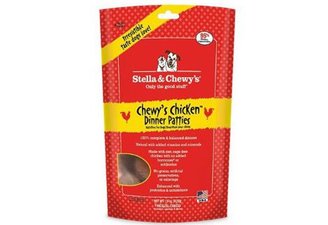 Stella & Chewy’s, an Oak Creek, Wisconsin-based pet food manufacturer, has issued a voluntary recall for a single lot of Chewy’s Chicken Freeze-Dried Dinner Patties for Dogs and for Cats, 15 oz. bags (Lot # 111-15). The Maryland Department of Agriculture (MDA) detected Listeria monocytogenes in the product. The company is also voluntarily recalling a number of products that may have been exposed to the affected lot. The following products are included in the recall: Products from Lot #111-15: Product Description/Size/UPC/Lot #/Use By Date
Products that may have come in contact with the affected lot: Product Description/Size/UPC/Lot #/Use By Date
According to a press release issued by the company, the products included on the recall list above were sold throughout the U.S. to wholesale distributors and retail stores for resale to consumers. The recalled products were not made available in Canada. The best way to determine if you have a product included in the recall is to compare the product description and bag size located on the front of the bag, the UPC #, the lot code, and the use by date located on the back of the bag with the two charts provided above. There were no reported pet or human illnesses associated with this recall. Listeria can cause serious and sometimes fatal infections in young children, frail or elderly people and others with weakened immune systems. Healthy individuals may suffer only short-term symptoms such as high fever, severe headache, stiffness, nausea, abdominal pain, and diarrhea. Listeria infection can also cause miscarriages and stillbirths in pregnant women. Animals ill with Listeria will display symptoms similar to those seen in humans. People who have concerns about whether their pet has symptoms associated with Listeria infection should contact their veterinarian. For questions about the recall and affected product, please contact Stella and Chewy’s customer service team in Wisconsin at [email protected] or888-477-8977 A Peaceful Farewell provides compassionate at home pet euthanasia to fellow pet owners in Chandler, Gilbert, Mesa, Tempe, Ahwatukee, Scottsdale, and most of the Greater Phoenix Metropolitan Area.
|
The PAW Blog...
For the LOVE of Pets The goal of this blog is to help educate pet owners by sharing pet health facts and pet news articles...and ... sometimes put a smile on your face with a cute or funny pet story! Categories
All
Archives
July 2024
Search for any topic...
|

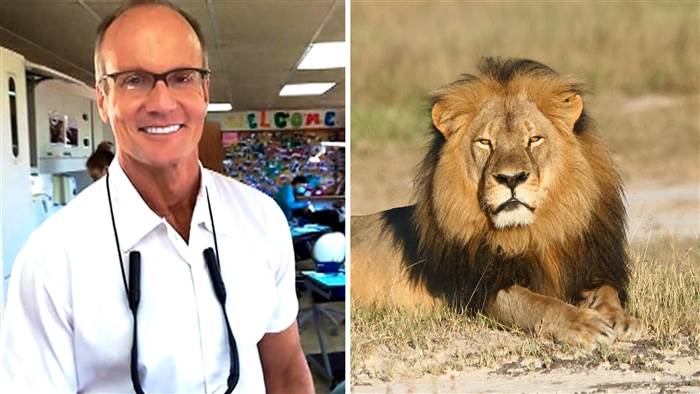

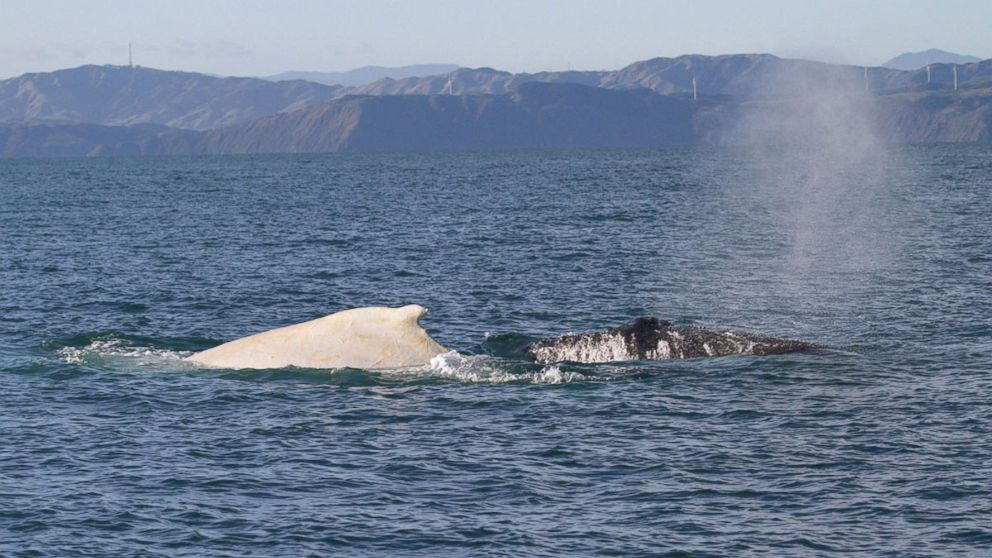
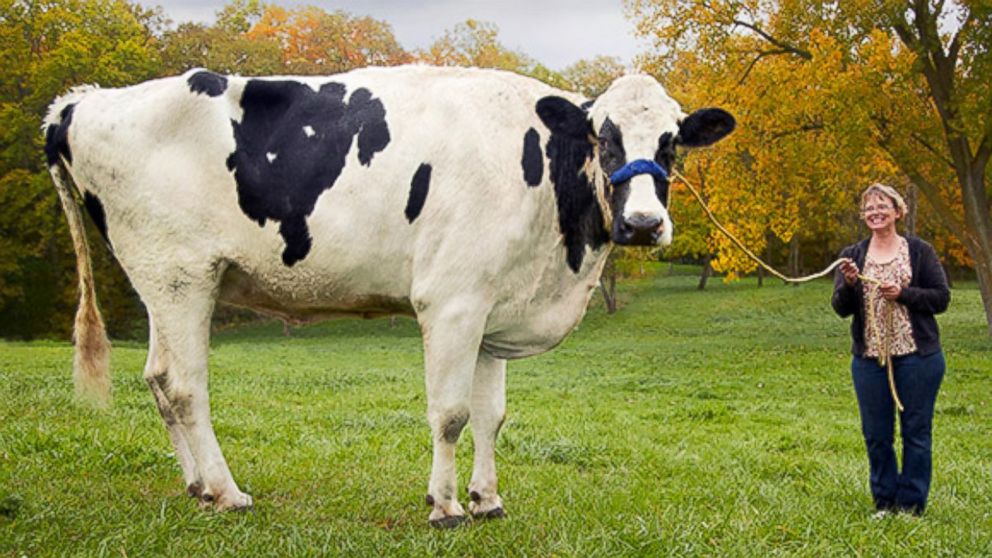
 RSS Feed
RSS Feed

